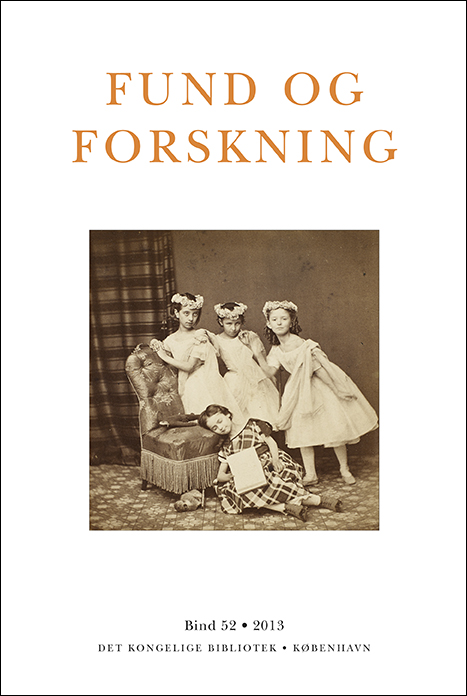Hvem var opænbarligh gen guth i Jyske Lovs Fortale? Et studie i Lovbogens teksthistorie
DOI:
https://doi.org/10.7146/fof.v52i0.41292Resumé
One sentence in the Prologue of the Law of Jutland (1241) has caused much scholarly
discussion since the nineteenth century. Did it say that “the law which the king gives
and the land adopts, he [i.e. the king] may not change or abolish without the consent
of the land, unless he [i.e. the king] is manifestly contrary to God” – or “unless it [i.e.
the law] is manifestly contrary to God”? In this article it is argued that scholarly conjectures about the original sense of the text at this point have paid insufficient attention
to the textual history of the law-book.
On the basis of Per Andersen’s recent study of the early manuscripts of the Law
of Jutland, it is shown that the two earliest surviving manuscripts both have a reading
that leaves little doubt that the original text stated that the king could not change the
law without the consent of the land unless the law was manifestly contrary to God. The
equivocal reading that has caused the scholarly controversy was introduced by a conservative
revision of the law-book (known as the AB text), which is likely to have originated
in the aftermath of the great charter of 1282, which sealed the defeat of the jurisdictional
pretensions of King Erik V. A more radical reading, leaving no doubt that the king
would be acting contrary to God in changing the law without consent, occurs in an early
fourteenth-century manuscript and sporadically throughout the fifteenth century, but
it never became the generally accepted text. On the contrary, an official revision of the
law-book (the I text), probably from the first decade of the fourteenth century, sought to
eliminate the ambiguity by adding “and he may still not do it against the will of the land”,
thus making it clear that it was the law that might be contrary to God.
Due to the collapse of the Danish monarchy in the second quarter of the fourteenth
century, the I text never superseded the AB text. The two versions coexisted
throughout the fourteenth and fifteenth centuries and soon produced a number of
hybrid versions. One of these gained particular importance, since it was the text that
was used for the first printed editions of the Law of Jutland in 1504 and 1508. Thus it
became the standard text of the law-book in the sixteenth century. The early printed
editions also included the medieval Latin translation of the Law of Jutland and the
Latin glosses to the text. The glosses are known to be the work of Knud Mikkelsen,
bishop of Viborg from 1451 to 1478. Based on a close comparison of the three texts, it
is argued here that Bishop Knud was also the author of the revised Danish and Latin
texts of the law-book that are included in the early printed editions, and that the whole
work was probably finished in or shortly after 1466. Bishop Knud included the I text’s
addition to the sentence about the king’s legislative powers.
An effort to distribute Bishop Knud’s work as a new authoritative text seems to
have been made in 1488, but rather than replacing the earlier versions of the Law
of Jutland, this effort appears to have triggered a spate of new versions of the medieval
text, each of them based upon critical collation of several different manuscripts.
In some of these new versions, a further development in the sentence on the king’s
legislative power brought the sentence in line with the political realities of the late fifteenth
century. Instead of having “he” [i.e. the king] as the agent of legal change, they
attribute the initiative to the indefinite personal pronoun man: at the time, any such
initiative would require the agreement of the Council of the Realm.
Only the printing press brought this phase of creative confusion to an end in the
early sixteenth century.
Finally, it is argued that the present article’s interpretation of the original sense
of this particular passage in the Prologue is in accordance with the nature of Danish
legislation in the period from c.1170 to the 1240s, when most major legislation happened
in response to papal decretals and changes in canon law.


